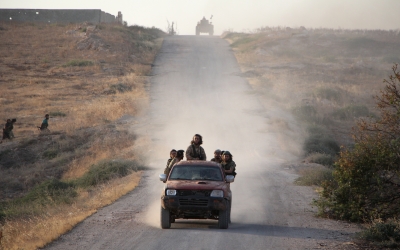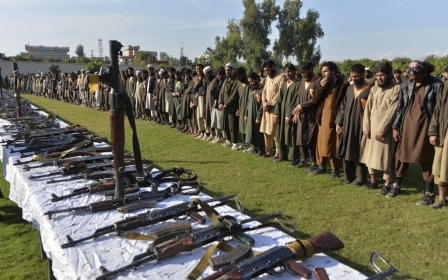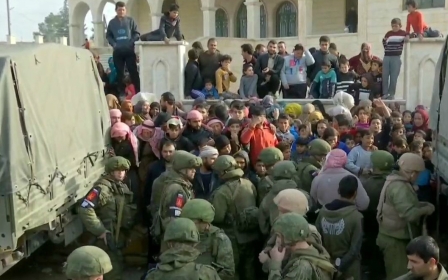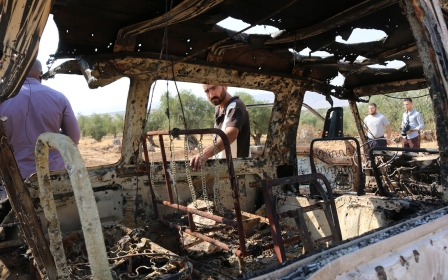Rights group hopes new evidence of Islamic State 'justice' bureau can identify perpetrators
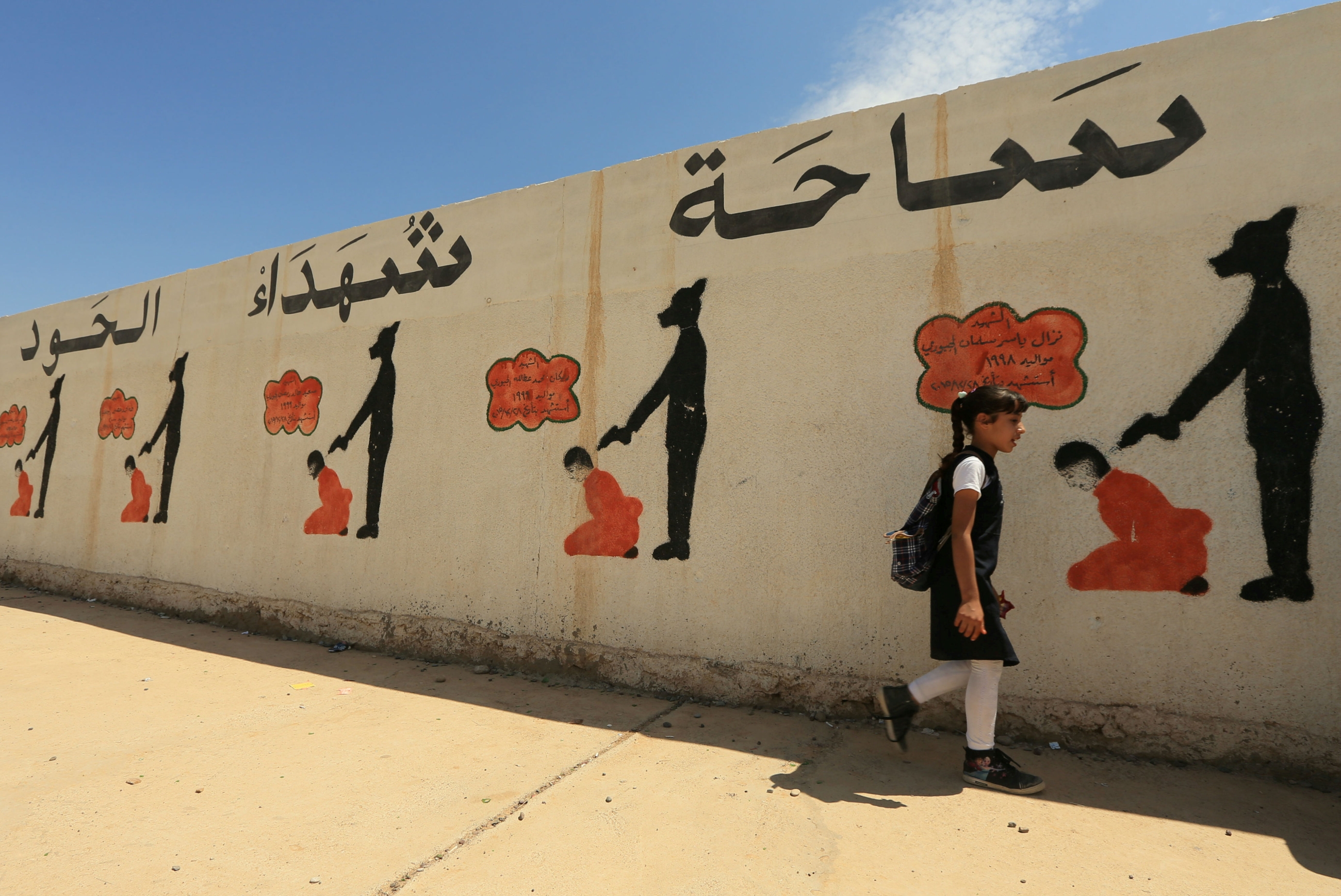
A Washington-based rights group has named Islamic State (IS) members responsible for meting out horrific abuse under the guise of "justice", in the hope that one day they will be brought to justice themselves.
In a report titled “Judge, Jury and Executioner”, the Syria Justice and Accountability Centre (SJAC) cited documents produced by the militant group which could help identify individuals responsible for crimes committed under the supervision of IS's so-called Bureau of Justice and Grievances.
The report cites evidence of penalties imposed by the bureau, suggesting it had assumed roles far beyond its original mandate of hearing complaints against IS officials and fighters.
Middle East Eye has not been able to independently verify the documents seen by the SJAC.
The Bureau of Justice and Grievances, according to the report, is one of 14 governing agencies in the IS administration that ruled large areas of Syria and Iraq between 2014 and 2019.
Since IS's territorial defeat early last year, the bureau has been essentially redundant. But, SJAC’s executive director Mohammad Abdullah told Middle East Eye, its members are mostly still at large.
The bureau's bureaucratic structure lay below the caliph and IS's Shura Council, and above the local courts and offices, the report added.
In addition to regulating the daily lives of citizens, the bureau imposed and executed harsh punishments, such as the death sentence, lashing, amputation and death by stoning.
For example, one of the leaked documents shows that the bureau ratified a death sentence on an individual it convicted of blasphemy, who allegedly cursed God during an argument with his wife. Another man was sentenced to death for insulting God during a fight with a child.
“These examples illustrate that the harsh penalties executed by ISIS enforcers originated in orders issued by the bureau,” the SJAC said, using an alternative acronym for IS.
“While ISIS may be known for its brutality, it is the Bureau of Justice and Grievances that played a key role in legitimising violence by the imposition of such penalties.”
Challenging process
The report suggests that IS may have simulated the Syrian government’s methods of repression, which the militant group claimed to reject.
“The Syrian security sector illusively operated above many ministries and other sectors of the Syrian government to consolidate control and power in itself,” the SJAC said.
“Based upon SJAC’s review of these documents, it appears that ISIS, intentionally or not, mimicked this consolidation of power within the Bureau of Justice and Grievances.”
While a number of officials affiliated with the Syrian government have been prosecuted in Europe over alleged crimes against humanity in their country, the authors of the report are hoping IS members will also face justice.
But the process of identifying IS members is more challenging because they conceal their identity by using nicknames, and they hide their faces in their videos, according to Abdullah.
'While IS may be known for its brutality, it is the Bureau of Justice and Grievances that played a key role in legitimising violence by the imposition of such penalties'
- Syria Justice and Accountability Centre
Abdullah said his centre has so far identified nine names of people who are perceived as culprits in human rights violations. They include judges, prosecutors and prison guards affiliated with IS.
Abdullah told MEE that all names in the leaked documents are pseudonyms. The next step for his team, he said, would be to match those names to the faces that appeared in IS videos.
“Some of them were standing right by the execution point, or witnessing the amputation of arms or legs,” he said.
If enough matches are found, he said the research might lead to revealing the IS chain of command.
He added that his centre submitted the documents and analysis to Europol to support prosecution in Europe for repatriated IS fighters.
Abdullah also said his organisation shared evidence with the UN International, Impartial, and Independent Mechanism for Syria (IIIM).
Syria is not a signatory of the Rome Statute, so the International Criminal Court has no jurisdiction for crimes committed there.
Foreign courts, therefore, have pursued those accused of war crimes in the country's ongoing civil war, most prominently the case involving the killing of journalist Marie Colvin that is being pursued in the United States.
Middle East Eye delivers independent and unrivalled coverage and analysis of the Middle East, North Africa and beyond. To learn more about republishing this content and the associated fees, please fill out this form. More about MEE can be found here.


